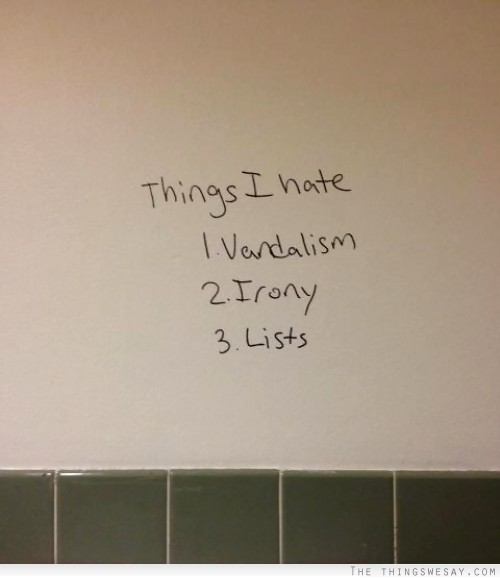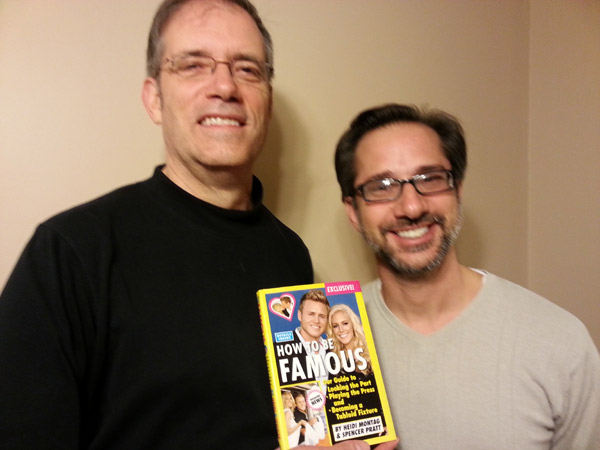23 More People Who Made Me Care About Poetry in 2013 (From One of the Million People Who Will Make You Care About Poetry in 2013)

When I first moved to Manhattan in 2008, I roughly knew about three people in the entire city. I lived in a bedbug-infested apartment on 139th Street with a sugar baby, a Bubba Gump Shrimp waiter, and a digital retoucher. At the time, I thought I was going to work as an assistant in photo studios while applying to MFA programs on the side—a plan that ended up completely shifting (no MFA, au revoir photo world)—but that’s not what I’m here to write about. I knew nothing of the NYC literary world, especially that of poetry. One day I had wandered into a library near 103rd to check out some familiar books. I saw a flyer for POETRY DISCUSSION GROUP / TONIGHT’S THEME: DEATH and hung around, hoping to meet some poets. And talk about death, of course.
What I ended up was sitting in a circle with about a dozen people, myself the only person under 60. As one cantankerous woman pointed out—most of them were “sitting in god’s waiting room” & it was “foolish to romanticize death”. This lead to a shouting match between attendees. So there I sat, hands in lap, in a coven of curmudgeons, horribly embarrassed at how much I misgauged what I thought I would be participating in. This is not to say that these old folks couldn’t have schooled me. I perhaps have never witnessed a more intensely personal discussion of death with any group of strangers in such a short amount of time in such a public space. But my point is that geography is a strange creature, containing wheels inside wheels. I wanted to meet young poets in their early 20s who would show me who they were reading, where they were reading at, where they hung out. This Upper West Side library, much to my ignorance, was not that place. I didn’t find that niche for a long time, even though we all lived inside the same city. It took many misguided open mics and weird basement readings to find the people I wanted to be around.
In some ways, I’d say this year is the first year I’ve been asked to read at series that I didn’t have to creepily solicit (although I still creepily solicit). It wasn’t until my first chapbook came out last fall that people gradually stopped introducing me as “that guy who runs Moonshot“. Every day is baby steps, is one poem after the other. I think it’s important to highlight these gooey ‘writer journeys’ we hear about over and over again to show how people find their way to meeting writers and literary scenes they care about. It’s hard when you’re on the outside and suspect others are members of a literary cabal who are only interested in helping each other out. I’ve been there. I’m still there, in many ways. Not everyone who lives in NYC is geographically self-obsessed or entitled or had everything fall into their lap instantly. Does this even need to be said? It took five years just to reach a point where the lit projects I’ve started here (or been involved with) have been around long enough where it people come up to me and say they know who I am, what I do. It hasn’t gotten less jarring yet—maybe one day it will.
Perhaps this is why it’s equally surprising to find myself on a list called 23 People Who Will Make You Care About Poetry in 2013. It’s even stranger to watch people—in response to this list—echo criticisms I’ve made of NYC’s poetry scene—white, exclusive, cliquey, centered around itself. Except, in this case, I was included on an exclusionary list. I’m now that person. Numbered lists are incredibly tricky to begin with because they seem so incredibly final, as if there are no others. Here are the 23 chosen ones. There is a glib part of me that wants to say we should take these kinds of lists with a grain of salt, that wants to point out that media sites have to churn out dozens of these insipid listicles per day—but I know that will incise—and I recognize that it’s my privilege that would allow me such flippancy.
The Hunger Games % Academic Conference
A tiny bit ago, like in February, Carina Finn, the girl author of Lemonworld, published a list of the panels that were to be held at The Hunger Games % Academic Conference.
The conference was kind of (though not really) supposed to take place soon after, but due to incidents involving peanut butter, Sean Cody, and tea parties, the conference kept incurring delays.
Finally, on a cool summer night, the primary participants of The Hunger Games % Academic Conference — New York City Poetry Festival princess Stephanie Berger, Carina, and me — gathered at a sharply secret location, and the conference, after so many months, commenced.
Before the first panel was to begin, controversy came. I noticed that the then title of our conference, The Hungers Games Academic Conference, looked sort of weird, like Barack Obama’s birth certificate (which I still haven’t had the chance to see, by the way). I suggested that we add percentage symbols before the “The” and after “Games.” Carina concurred that The Hunger Games Academic Conference was too plain to be pretty, but she deemed that two percentage symbols was a surfeit, and declared that there should only be one, and that one should come after the “Games.” So that’s how The Hunger Games Academic Conference became The Hunger Games % Academic Conference.
Stephanie, who’d been texting with boys throughout the title alteration, then declared, “We’re off to a good start.” But her cheer was countered right away when a stack of referential texts, including Kate Durbin’s Kept Women, Sianne Ngai’s Our Aesthetic Categories, and an alien anthology of film theory essays, toppled over.
And on that odious note, the first panel — The Hungers Games As a Micro/Macrocosm of the Hungarian Doctor in Celine’s Oeuvre As Interpreted by Kristeva; or, Stephanie Drops Her Port — proceeded with both Stephanie and Carina recalling the specific time when the former dropped her port; both labeled the occurrence “a moment of abjection.”
Carina then touched on the Celine component of the panel by describing both Celine and The Hunger Games as dramatically violent and pastorally lovely.
Kate Durbin interviews Rob Wittig & Mark C. Marino of “Tempspence”

In January 2013, reality television star Spencer Pratt offered use of his official Twitter account to electronic literature writers Mark Marino and Rob Wittig while he was filming Celebrity Big Brother in London. The result was a netprov (networked improv narrative) project in which a fictional British poet supposedly hijacked Spencer’s phone and identity, was then unmasked, and began to promote his own poetry. The fictional British poet wound up encouraging Spencer’s followers to write their own poems. Originally titled “Reality,” the project was dubbed Temporary Spencer or “Tempspence” by fans.
As someone who follows and re-tweets celebrities on Twitter for my own conceptual Twitter project, I came across Tempspence naturally, as I followed and re-tweeted Spencer Pratt already. When Spencer / Temspence tweeted that he was buying his girlfriend Heidi Montag my collaborator Amaranth Borsuk’s digital poetry book Between Page and Screen, the top of my head exploded, in a post-Dickinson-cyberspace kind of way. My own transcription project of an episode of The Hills made Tempspence particularly fascinating to me, since I’d been studying the multi-faceted character of Spencer Pratt for a long time. And of course I cannot resist any project that implodes the false distance between mediums / worlds normally considered totally disparate, such as reality TV and avant garde literature. So, after eagerly following the Tempspence project to its completion, I knew I had to find out more about the masterminds behind it.
Kate: Tell me how Tempspence came about. It seems a miracle of literary and reality TV worlds colliding!
Mark: Spencer was a student in my Advanced Writing course at USC. During that class, Rob and I ran a netprov called F.A.I.L. (Fantasy Automated Investors’ League) with the students. That game introduced Spencer to #netprov, but I believe he has a natural affinity for improvised performance after years on Reality TV. He’d also seen my Workstudy Seth tweets and commiserated about having someone go rogue on your Twitter account. So as January approached and he knew he’d be sequestered from Twitter for three weeks (or less), he asked if I’d be interested in running a netprov through his account. He initially proposed me Tweeting as him on a phone hidden in the Big Brother house, but since the logistics of that were too difficult, given the distance, the constant surveillance, and the time difference, I proposed the “lost phone” idea. Playing a fictional character in England who had found his phone would be much easier, and so on Jan 1, Heidi Tweeted that Spencer had lost the new phone she’d bought Spencer for Christmas during their wild New Year’s Eve celebrations.
Kate: I love this on so many levels. I love that Spencer, the reality TV celebrity, was your student, Mark, and I also love that he was the one who approached you to run a netprov through his account. I love that he “got” the game, and was willing to play, although I think you are right that his work in reality TV would naturally attune him toward improv performance, as well as performance mediated through the latest technological mediums, trying out new ways of reaching an audience. Spencer on The Hills was such a fascinating character–you could almost see his mind working as he improvised scenes, manipulating situations to evoke audience response. It sounds like he saw a similar opportunity in working with you two.
Did Spencer talk to you at all about what he specifically hoped to gain through the experience, or why he wanted to do this? And why did you guys want to do it? Was there a particular experience you wanted to have, or to create?
Mark: Well, Spencer’s account is almost at 1 million followers. Almost. And getting to know him and his oeuvre, I have come to recognize him as king of the publicity stunt. That’s why it was almost impossible to shake people’s belief that Spencer was the one behind the account the whole time. Also, the literary element, the poet and his games, allowed Spencer to do something more sophisticated with his image than say, blowing his fortune on the 2012 apocalypse. For Rob and I, it was a chance to bring netprov to a huge audience that had not previously been exposed to it — except in the very general sense that Spencerpratt account is basically always netprov. But playing with Spencer’s image was the ultimate lure. Like I was saying, as a reality tv star, Spencer lives a kind netprov, and yet people always think they’re getting the “real” him. They were aghast (or pretended to be) at the thought that someone other than Spencer would Tweet from his account either as a stunt or having stolen or found his phone. I would get tides of hate from all sides. READ MORE >
The Embrace of Impurity

Eva Hesse - Hang Up, 1966
Gaga Stigmata

Uber cool Kate Durbin has created a new journal called Gaga Stigmata: Critical Writings and Art About Lady Gaga . Right now it features work from Meghan Vicks (a doctoral student of Comparative Literature at CU Boulder) and htmlgiant comrade Brian Oliu. Here’s the scoop:
Gaga Stigmata: Critical Writings and Art About Lady Gaga is a new technological breed of journal that intends to take seriously the brazenly unserious shock pop phenomenon and fame monster known as Lady Gaga.
Submit:
Critical Work (any format; any length) and Art (Creative Writings, Visual Art, Music, etc.), or any combination thereof, that intelligently interacts with the pop cultural manifestation that is Lady Gaga.
We are also interested in critical writings on the web that already exist, so please call these to our attention if you come across them.
Those who follow Gaga know that she moves as the speed of pop, which is far faster than the speed of critique; therefore, we have chosen the blogger format for now to allow us to keep pace with Gaga. We encourage pieces that are immediate (for example, critical responses to her newest performances, interviews, and music videos), though we are also eager for your more thought-over works as well. If your work is accepted, expect it to be published quickly–likely within a day or two of acceptance. You should also expect to interact with others in the comment boxes of the blog; permitting the peanut-crunching crowd of monsters to further the conversation’s evolution.
Our goal is to eventually create a book of the best works on this site, both in technological and physical form, possibly in collaboration with the Haus of Gaga.
Send all submissions to gagajournal@gmail.com
March 20th, 2010 / 12:35 am

